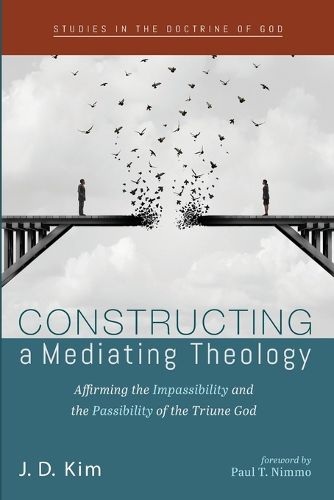Readings Newsletter
Become a Readings Member to make your shopping experience even easier.
Sign in or sign up for free!
You’re not far away from qualifying for FREE standard shipping within Australia
You’ve qualified for FREE standard shipping within Australia
The cart is loading…






This title is printed to order. This book may have been self-published. If so, we cannot guarantee the quality of the content. In the main most books will have gone through the editing process however some may not. We therefore suggest that you be aware of this before ordering this book. If in doubt check either the author or publisher’s details as we are unable to accept any returns unless they are faulty. Please contact us if you have any questions.
How does an almighty and all-loving God respond to his beloved human creatures, who are made in his image and yet implicated in sin and suffering? What is the origin of human suffering? Is it sin or the limitations of human beings? Is God moved by our suffering? If he sympathizes and co-suffers with us, can he deliver us out of our miseries? Thousands and perhaps millions of people have asked these questions and are searching desperately for their answers. Two major views have been advanced in the history of Christian theology to describe God's response to the suffering of the world: divine impassibility and divine passibility. More recently, a third, mediating position between impassibilism and passibilism has arisen which affirms both the impassibility and the passibility of God. This position can be identified as modified classical theism, an approach that grasps the perfect and relational nature of God. Following this mediating position, this book sets out its own constructive understanding of a mediating position with the help of a new way of understanding the way in which the eternal actions (and corresponding passions) of the divine persons condition one another--the dynamic reciprocity model.
$9.00 standard shipping within Australia
FREE standard shipping within Australia for orders over $100.00
Express & International shipping calculated at checkout
This title is printed to order. This book may have been self-published. If so, we cannot guarantee the quality of the content. In the main most books will have gone through the editing process however some may not. We therefore suggest that you be aware of this before ordering this book. If in doubt check either the author or publisher’s details as we are unable to accept any returns unless they are faulty. Please contact us if you have any questions.
How does an almighty and all-loving God respond to his beloved human creatures, who are made in his image and yet implicated in sin and suffering? What is the origin of human suffering? Is it sin or the limitations of human beings? Is God moved by our suffering? If he sympathizes and co-suffers with us, can he deliver us out of our miseries? Thousands and perhaps millions of people have asked these questions and are searching desperately for their answers. Two major views have been advanced in the history of Christian theology to describe God's response to the suffering of the world: divine impassibility and divine passibility. More recently, a third, mediating position between impassibilism and passibilism has arisen which affirms both the impassibility and the passibility of God. This position can be identified as modified classical theism, an approach that grasps the perfect and relational nature of God. Following this mediating position, this book sets out its own constructive understanding of a mediating position with the help of a new way of understanding the way in which the eternal actions (and corresponding passions) of the divine persons condition one another--the dynamic reciprocity model.